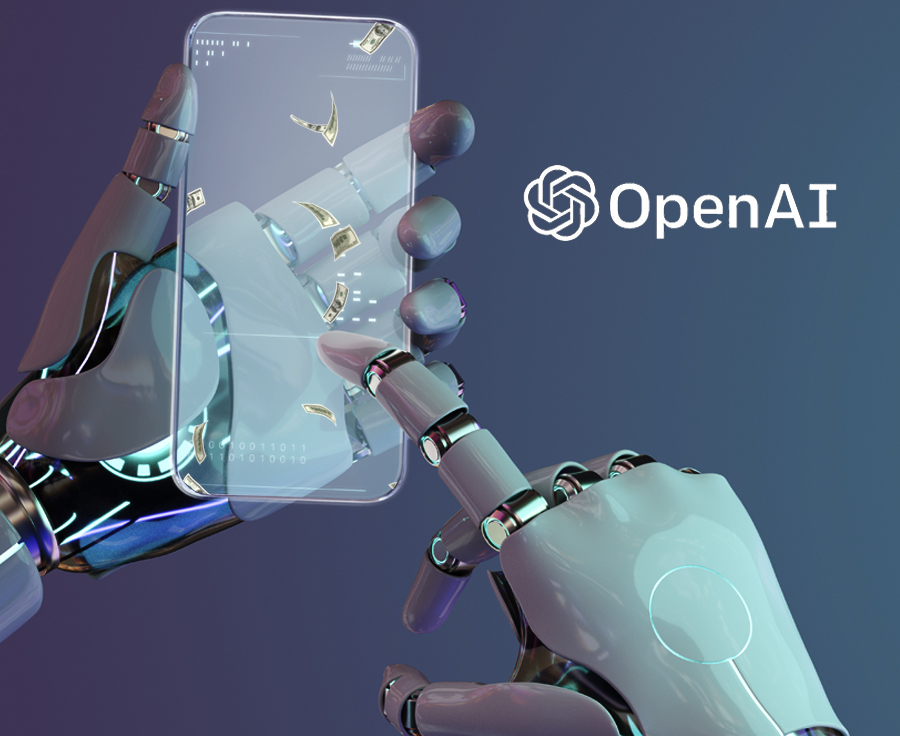
































The European Union (EU) is considering whether to launch a probe into Microsoft's investment in OpenAI, a ChatGPT maker, due to concerns about the potential impact on competition and the market.
The European Commission has announced a competition investigation specifically focusing on virtual worlds and generative AI markets. As part of this assessment, the commission aims to evaluate the competitiveness of these markets and understand how competition law can effectively govern them. Notably, the European Commission scrutinises agreements between major digital market players and generative AI developers, with Microsoft's investment in OpenAI singled out for examination.
Specifically, in a statement on 9 January 2024, the European Commission indicated its intention to evaluate whether Microsoft's investment in OpenAI aligns with the EU merger regulation. The commission has contacted various digital players for information and called interested parties to provide insights on competition issues and the impact of EU competition law on these markets until Monday, 11 March 2024.
'The European Commission has launched today two calls for contributions on competition in virtual worlds and generative artificial intelligence ('AI') and sent requests for information to several large digital players.
All interested stakeholders are invited to share their experience and provide feedback on the level of competition in the context of virtual worlds and generative AI, and their insights on how competition law can help ensure that these new markets remain competitive. The European Commission will carefully review all input received through the calls for contributions. Following that review, the Commission may organise a workshop in the second quarter of 2024 to bring together all different perspectives emerging from the contributions and continue this reflection.
In addition, the European Commission is looking into some of the agreements that have been concluded between large digital market players and generative AI developers and providers. The European Commission is investigating the impact of these partnerships on market dynamics.
Finally, the European Commission is checking whether Microsoft's investment in OpenAI might be reviewable under the EU Merger Regulation.'
Microsoft's substantial investment in OpenAI, totalling$13 billion, has attracted regulatory attention, since the tech giant initially invested$1 billion in 2019 and reportedly poured more than$10 billion into OpenAI in the last few years. The EU assessment follows the UK Competition and Markets Authority's announcement of an initial review in December, and the US Federal Trade Commission revision of the partnership. Additionally, a coalition of civil society organizations has submitted responses to the CMA, asserting that Microsoft's influence on OpenAI extends beyond a financial investment, potentially affecting competition dynamics.
Concerns about Microsoft's influence on OpenAI heightened when the UK CMA questioned whether Microsoft's stake in AI created a relevant merger situation, given that OpenAI experienced internal upheavals, including removing and reinstating its CEO, Sam Altman. Microsoft's inclusion of an observer on OpenAI's board raised suspicions of potential control, although Microsoft insists the observer is a nonvoting member.
While Microsoft's investment in OpenAI is in the form of cloud-computing credits and cash, giving it the potential for a significant return on its capital, the official control of the company itself remains limited. However, Microsoft's intervention in OpenAI's internal struggles, particularly the CEO power struggle, has attracted notable attention in November of 2023.
As the EU closely monitors AI partnerships to prevent distortions in market dynamics, questions linger about the concentration in the AI market and the exclusive agreements between major tech companies and AI startups. The evolving situation underscores the need for transparent scrutiny and regulatory adaptation to the fast-paced evolution of technology markets.
Why does it matter?
The evolution of OpenAI's portrayal of Microsoft's role has undergone a noteworthy transformation since the onset of the internal management conflict. In November, OpenAI's website featured a chart delineating the organisation's structure, characterising Microsoft as a 'minority owner.' Subsequently, this depiction underwent a subtle but significant modification, as the terminology was adjusted to denote Microsoft's involvement as a 'minority economic interest.' This alteration in legal terminology not only underscores the nuanced nature of Microsoft's engagement but also points to a deliberate shift in the narrative, prompting a closer examination of the evolving dynamics between OpenAI and Microsoft in the aftermath of the conflict.
The scrutiny highlights the importance of effective regulation in the tech industry to prevent dominance and ensure fair competition.
 Tags quentes :
Legislação e regulamentação
Computação em nuvem
Tags quentes :
Legislação e regulamentação
Computação em nuvem